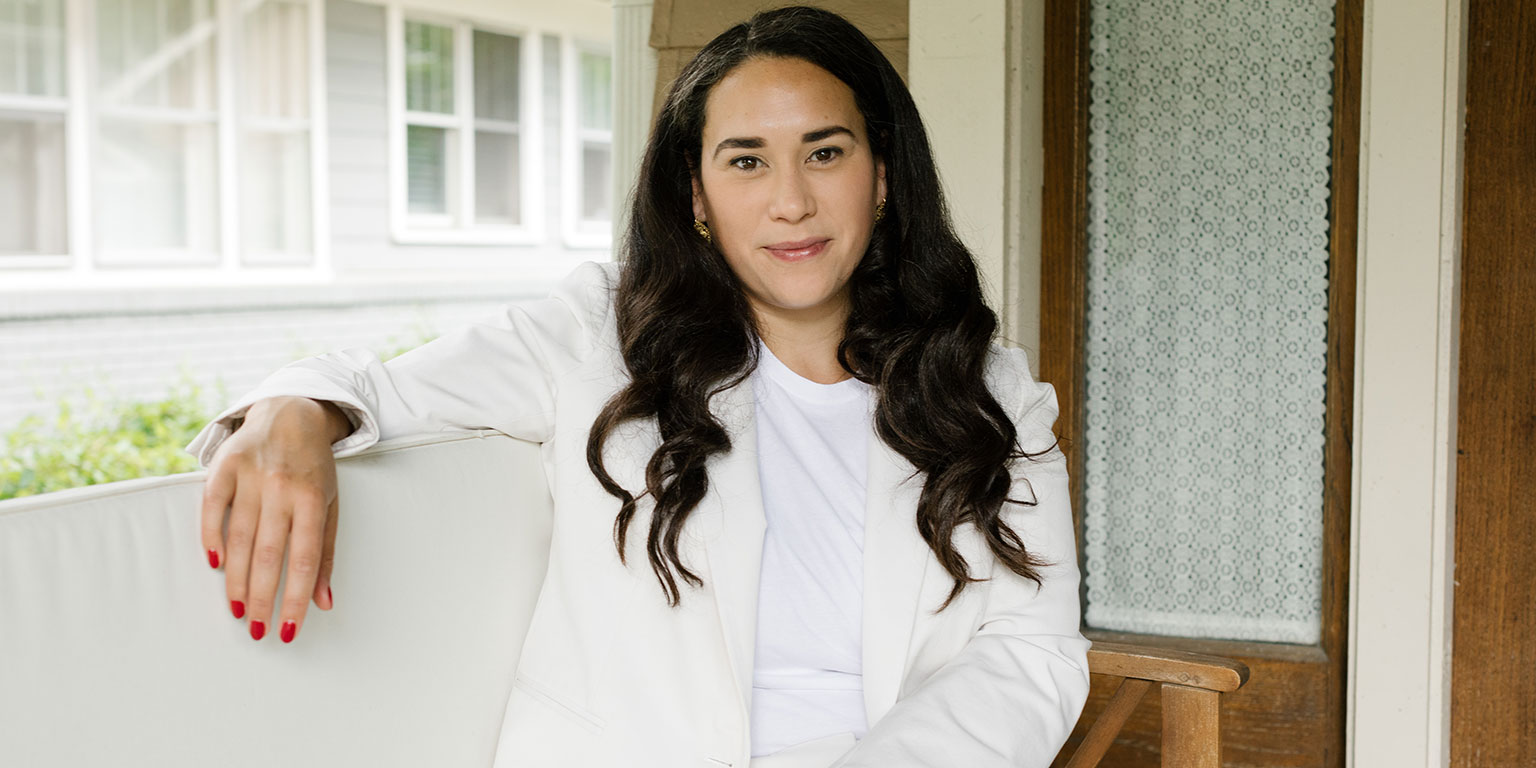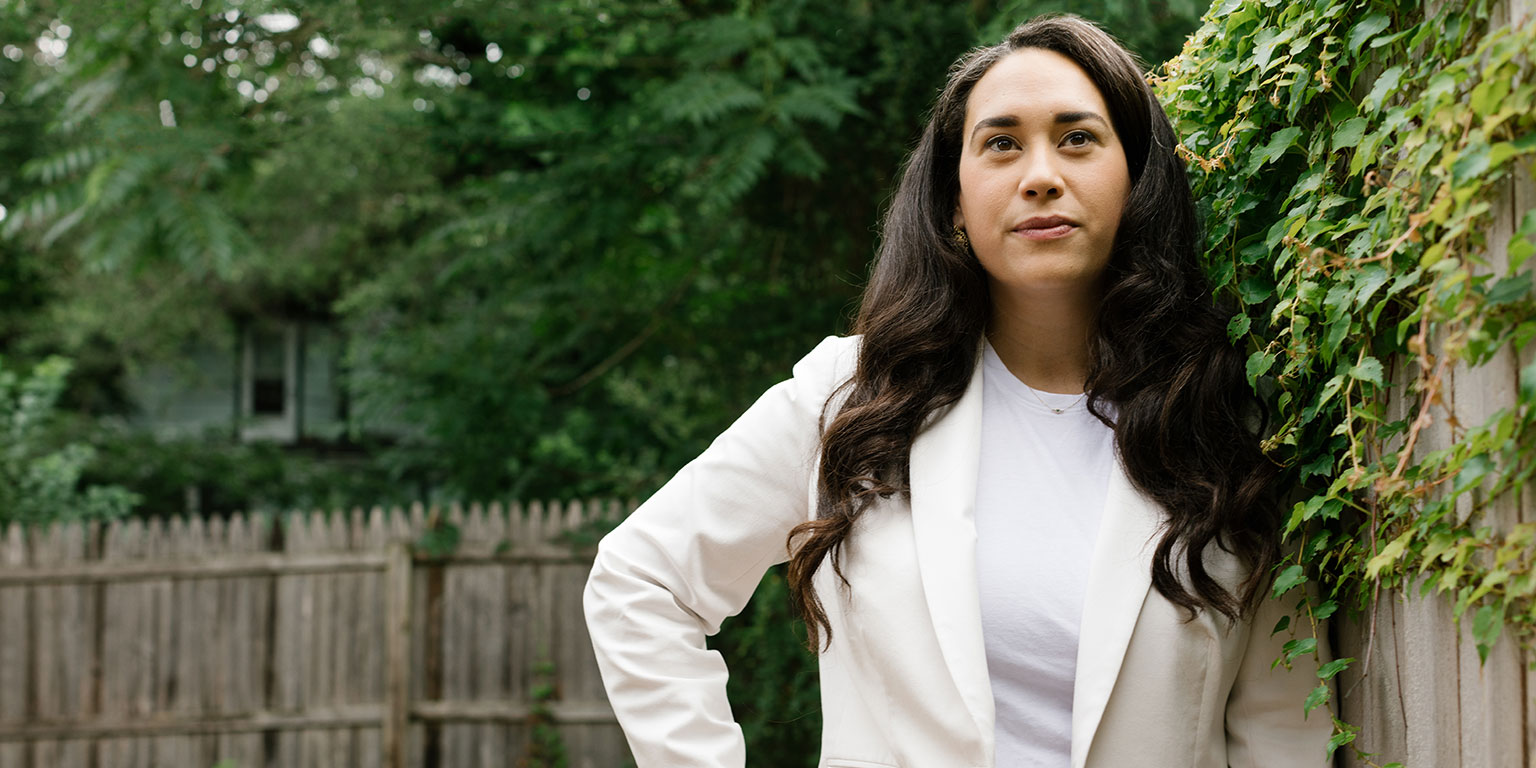By Katie Moulton | Fall 2021
Photography by Anna Powell Denton
At first glance, triple-Hoosier Elyssa Campodonico-Barr’s career seems to span continents and contradictions. She’s a powerful executive who puts service first, a lawyer who found different ways to practice advocacy. A trained diplomat, she has traveled far afield, but now she digs into hyperlocal issues back home again in Indiana.
Yet the seeds of Campodonico-Barr’s impulse toward the wider world and high achievement were sown early on by someone very close to her heart.
“My grandmother is the voice in my ear,” says Campodonico-Barr (B.A.’09 Political Science/Philosophy, Spanish). “She was good about setting expectations really high despite what you may be going through at home. She had this beautiful way of putting you in the place where you could be where she saw you.”
Her grandmother “came from very little” in rural Panama, raised four children, survived breast cancer, and became the first female consulate general for Panama to the United States, working between Central America and Chicago.
“She would always ask, ‘When are you going to run for senator?’” Campodonico-Barr recalls with a laugh. “It was always with a very loving undertone, but the message was, ‘You can and will.’ She always asked, ‘What are you doing with your education? What are you doing to grow?’”
What are you doing to grow? is a question that drives Campodonico-Barr’s wide-ranging career as an ethics-minded servant-leader. She’s long been focused on improving the lives of women and girls, whether working with U.N. Women, the Indiana University General Counsel’s office, the Indiana Bureau of Motor Vehicles, as CEO of Girls Inc. of Greater Indianapolis, or her current role as a program director in community development with the Lilly Endowment.





